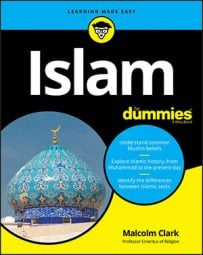The history of religious dialogue involving Muslims began when some early caliphs sponsored theological debates at court between Muslims and non-Muslims. Later, for limited periods of time, much fruitful interaction occurred among Muslims, Jews, and Christians in Spain. Still later (sixteenth century), the Mughal emperor of India, Akbar, sponsored religious dialogue in his court and encouraged seeking religious truth wherever it could be found.
In modern times, an organized movement for religious dialogue first arose in the 1960s. A key event was the "Declaration on the Relationship of the Church to non-Christian Religions" produced by the Second Vatican (Roman Catholic) Council in 1965. According to the document, salvation was possible not only for Christians but also for Jews and Muslims. Beginning in the 1960s, a number of high-level international inter-religious dialogue conferences were held, some sponsored by Muslims and others by Christians. Occasionally, Jews and members of other religion participated.
Modern institutes promoting religious dialogue include the Center for Muslim-Christian Understanding (at Georgetown University in Washington, DC), the Duncan Black McDonald Center for the Study of Islam and Christian-Muslim Relations (at Hartford Seminary, Connecticut), the Centre for the Study of Islam and Christian-Muslim Religions (at the University of Birmingham in England), the Islamic Foundation (in Leicester, England), and the Henry Martyn Institute (Hyderabad, India).
In the United States, active interfaith movements exist at both the local and national level. National organizations, such as the Interfaith Alliance, mainly involved Christians, Jews, and Muslims but welcome members of other religions, too. Such organizations try to promote religious tolerance both domestically and internationally. At the local level, most large cities have a local organization to promote dialogue among members of all religions. Local organizations nearly always involve some Jewish, Christian, and Muslim organizations. When the town has a Baha'i community, it will nearly always play a leading role in such organizations. Buddhist and Hindu participation depends in part upon the nature of specific Buddhist and Hindu groups in the communities but is welcomed and sought after by the local interfaith organization. Such organizations sponsor small group dialogues in members' homes, offer educational programs, hold open houses on major religious holidays at the places of worship of the constituent organizations, and in other ways promote constructive religious dialogue.
Principles of dialogue
Participation in a local interfaith organization is one of the better ways to get to know people of other religions, because you not only find out more about other religions, you also get to know people of differing faiths at the personal level. In this time of dialogue, keep in mind the following guidelines:
- Practicing fairness: Each side must represent the beliefs of the other side in a way that members of the other religion can affirm as accurate.
- Expressing empathy: Each side must make an honest effort to appreciate the appeal of the other religion to those who are attracted to it and to understand how the religion functions for its believers and makes sense to them.
- Avoiding misuse of scripture: In dialogue, you can't apply your own scripture to determine what's valid or invalid about beliefs of other side. If you do this, no dialogue takes place and each side quotes its own proof texts.
- Staying open to change and challenge: Participants don't want to simply repeat the party line of their religions without grappling with what the other side says. Otherwise, no dialogue occurs and two monologues that pass each other in the night.
- Steering clear of denunciations or debates: No dialogue takes place when one side wants only to denounce the positions of the other side. Dialogue isn't a debate in which one side tries to get the upper hand.
- Showing reciprocity: Apply the same standards to yourself, your own religion, and the scriptures that you apply to the religion of others.
- Avoiding preconditions: Preconditions declare the most crucial issues as settled or out of bounds before the discussion begins.
- Being cautious of sweeping generalizations (positive or negative): These obscure ambiguities and differences within either religion.
- Facing frankly areas of disagreement: Have a thick skin and don't get insulted too easily.
- Avoiding selective use of scripture, tradition, and history when discussing issues: An example is citing only those passages in the Qur'an that talk about violence and comparing them to only those passages in the Bible that talk about love and peace — or vice versa.
The future of inter-religious relations
To some extent, future dialogue is always affected by political events at the regional and international level. Prospects differ in each country; for example, current conflict between Palestinians and Israelis doesn't create a healthy climate for dialogue.
Small groups of people on both sides strive for peace, justice, and tolerance, but such actions are often opposed by the mass of citizens on both sides. In India today, the continuing tensions due to the dispute over Kashmir and growing Hindu nationalism in India contrast with the early twentieth century, when many Muslims and Hindus participated together in the movement for independence from the British. Fortunately, at present, contacts between members of various faiths continue to grow in the United States, and national political leaders publicly advocate religious tolerance.

